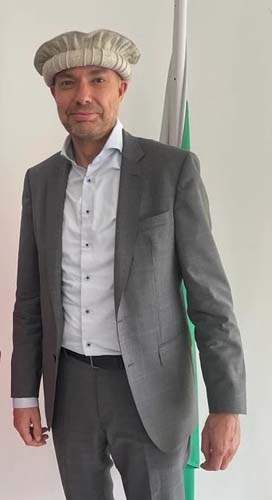
Ambassador Jakob Linulf invites attention towards cooling technique used in Denmark
Celina Ali
Islamabad: Ambassador of Denmark to Pakistan Jakob Linulf this week invited the attention towards a cooling technique used in his country.
“Naturally cold seawater is being pumped through pipes to cool down tourists in one-third of hotel rooms of Copenhagen,” he said on X platform tagging a news story.
The report said the hotels in the Danish capital are utilising district cooling to chill down guests. By pumping water from the port through pipes in a renewable cycle, the solution both reduces CO2 emissions and trims energy consumption.
As of 2023, approximately 8500 hotel rooms have been equipped with innovative air conditioning systems powered by seawater. This is an increase of 112.5% from 2018.
The water is derived from the Port of Copenhagen, and the solution is called district cooling, which is attractive as it emits less CO2 than traditional electric air conditioning systems.
“When a property connects to our district cooling, it reduces CO2 emissions by up to 70% compared to using local end-of-life cooling systems. Seawater requires less electricity, and the individual property can thus save up to 40% compared to local electricity-powered systems,” says Jakob Thanning, District Manager of Customer Solutions & District Cooling at HOFOR.
Copenhagen comprises just under 24,000 hotel rooms, and Scandic Hotels is one of the hotel chains that makes use of district cooling.
“It is a great advantage for us that we can use district cooling from seawater, as it allows us to reduce CO2 emissions in our hotels. At Scandic, we work purposefully to reduce our climate impact, and therefore it makes very good sense for us – also because we can remove noisy local installations from the hotel roofs. Instead, we are granted the opportunity to install e.g. solar panels,” says Tage Holck, Director of Technical Services at Scandic Danmark.
